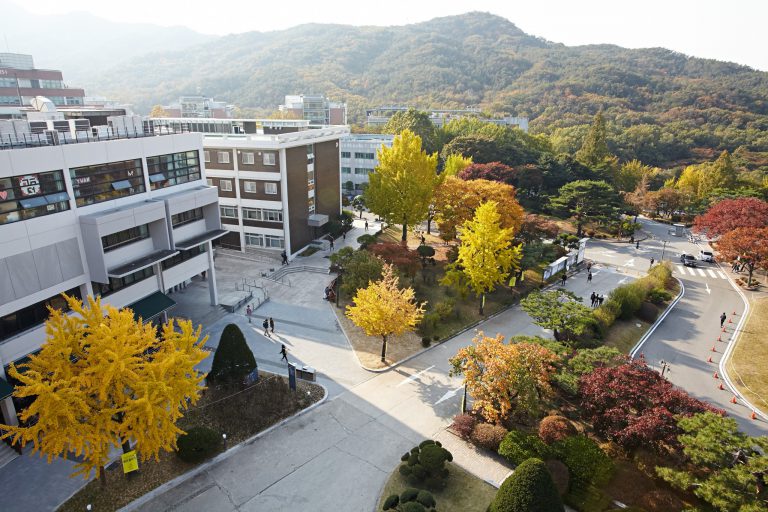
Seoul National University (SNU) is a vibrant and intellectual community where students and scholars work together to build a brighter future. SNU is South Korea’s first national university, and is already ranked 36th in the world by the prestigious QS World University Rankings, preparing students to live, work and above all prosper, in an increasingly globalised world.
Ranked 15th in the world for the quality of its provisions, the College of Engineering at SNU is known across the globe for its technological innovations, and is now widely recognised as one of the world’s top engineering faculties. The College is committed to producing exceptional international leaders, who will uphold the values of a civil and sustainable society to serve the people of Korea, and the world. The college is a world-class provider of undergraduate, graduate and research education.
SNU’s postgraduate provisions in particular are reputed across the globe, boasting dedicated faculty, state-of-the-art research facilities and outstanding scholarship opportunities for all international students. The College is a consistent producer of ground-breaking research, earning a reputation for excellence among the world’s most esteemed engineers, and pushing graduates to the height of their profession at both a national and international level.
The facilities available to students at SNU are second to none and include the newly established IDEA FACTORY – a creative space inspiring students from different departments and colleges to create, implement, test, and present new ideas through collaboration. The over 1’500 m2 large space is equipped with state-of-the art facilities such as 3d printers, laser cutters, CNC machines, computing workstations and more.
SNU’s graduate students live in simple yet stylish accommodation provided by the university, immersing themselves in one of the most gracious and traditional cultures in Asia as they pursue a stellar education at a top engineering school.
With an ever-growing palette of English-taught lectures, SNU is becoming increasingly attractive to Western students seeking a unique study experience that does not compromise on quality. All foreign students can pursue free Korean Language classes, capitalising on this once-in-a-life-time experience as they gain a true international perspective.

SNU plays host to a strong and diverse international community, all training to become the future leaders of their field. These students study hard, but they also live and laugh alongside like-minded peers, visiting Buddha’s temple in their free time, for example, partying with students from every corner of the globe, and meandering through the Cherry Blossom walks that simply can’t be found anywhere else in the world.
The Korean backdrop, history, culture and tradition is nothing like those found in the U.S., U.K., Canada or Australia, and students who choose to study at SNU are looking to do more than simply go along with the crowd. These are the students who seek somewhere a little bit different as they train to become the elite of global engineering.
Students interested in pursuing studies at the College of Engineering at SNU can get information about the admission procedure and timelines on the Office of International Affairs‘ admission site and the College of Engineering’s Welcome Center.
SNU’s College of Engineering departments include:
Department of Architecture and Architectural Engineering
This department seeks to integrate liberal arts with engineering and technology by encouraging intellectual investigation, aesthetic creativity and technical understanding. Under the guidance of world-reputed academics and professionals, students receive the high-quality training that allows them to flourish as architects and architectural engineers.
The Architecture Program endeavours to train future architects and equip them with the ability to understand culture, society and technology. This, along with the possession of a sound international perspective, allows them to build exceptional environments to support human life.
The Architectural Engineering program aims to develop future professionals with the ability to implement innovative and responsible leadership for continuous growth within the construction industry. Its diverse curriculum focuses on basic scientific knowledge alongside professional and technical skill.

Department of Chemical and Biological Engineering
This department hones in on the development of fresh engineering technologies that advance both the chemical and biological industries. Its main areas of interest are nanostructured organic, inorganic and electrochemical materials; catalysis; rheology and transport phenomena; green chemistry and environmental technology; process-systems engineering; semiconductors and display processing and materials; energy; biotechnology and bioengineering; polymers; fine chemicals and biomedical engineering.
By nurturing the leadership qualities of its students and teaching the principles that underlie the fields of chemical and biological engineering, the department produces graduates capable of succeeding in management positions within their chosen sphere.
Department of Civil and Environmental Engineering
This department dates back to 1946, the year of SNU’s inception. It first started offering specialized Majors in Civil Engineering back in 1978; then, in 1994, the Department of Civil Engineering and the Department of Mineral and Petroleum Engineering were merged to form the Department of Civil, Urban and Geosystem Engineering. The present department was formed in 2007, and boasts 25 highly-qualified members of faculty and 130 graduate students.
The department aims to shape the leaders of tomorrow who will develop the knowledge and technologies to build an improved and sustainable world.

Department of Computer Science and Engineering
SNU’s Department of Computer Science and Engineering leads the digital revolution that is defining our future. Though still in its infancy, this revolution is still expanding our intelligence, transforming the practical routes of science, and changing all corners of our economy and society at large. This department is globally recognized as a leader that helped shape this new frontier.
The primary mission of the department is to supply the people and ideas that are strongly footed in both the fundamentals of computing science and the mastery of technical skills.
Department of Electrical and Computer Engineering
This department is a cutting-edge force in the electronics and electrical fields, training engineers to meet industry demand and contributing to the improvement of scientific technology in the region. The department educates and carries out research in multiple areas to improve the welfare of society.
The department seeks to prepare students to become professional leaders in the fast-paced IT society, and to educate in the foundations of electrical engineering.
Department of Energy Resources Engineering
Established in 2008, this department seeks to meet the worldwide demand for high-calibre experts in the energy and mineral resources industries: coal, oil, gas, gas hydrates, geothermal, solar, iron, copper, uranium etc. The program covers the full spectrum of energy and minerals resources engineering, including exploration, development, reclamation, policy-making and environmental issues.
The department’s main mission is to educate students to become world-class contributors to the field, who can use their advanced creativity and leadership skills to find solutions to the problems of today, and long into the future.

Department of Industrial Engineering
Industrial Engineering (IE) is an academic discipline that systematically plans and designs complicated industrial, public, and service systems using engineering knowledge and scientific tools. It develops and applies various techniques for enhancing the ability to manage, operate, and analyze complex industrial systems efficiently and effectively. Industrial engineers are involved in the management, operation, and implementation of modern systems, including those of human, technological, information-based, material, and other resources.
The department and its acclaimed programs focus on developing students’ creativity, logical thinking abilities and leadership skills. With this training, graduates leave fully equipped to pioneer innovations and improvements in industrial systems.
Department of Materials Science and Engineering
Materials Science and Engineering play a key role in the high-technology era of the 21st century. Just as the early history of mankind is categorized into the Stone, Bronze, and Iron Ages, the development of modern industries and technologies have been based on the materials that human beings have used. From this, we can easily see that the development and utilization of advanced materials are closely related to the quality of our lives.
This department offers a dynamic environment for advanced research into metals, ceramics, polymers, electronic materials, biomaterials and energy, and environment-related materials.
Department of Mechanical and Aerospace Engineering
Mechanical and Aerospace Engineering (MAE) develops technologies needed for heavy industries dealing with engines, general machineries and transportation vehicles such as the automobiles, trains, ships, and airplanes. It provides equipment and plants for semi-conductors, digital home appliances and cell phones, and explores adventurous frontier technologies in the areas of nano-, bio-, energy-, and space-engineering.
The MAE Department at SNU focuses on five strategic research fields: 1) transportation vehicles, 2) robots, 3) space exploration, 4) environment/energy and 5) bio-medical engineering, and aims to educate students to become influential future leaders in these fields.
Department of Naval Architecture and Ocean Engineering
Korea boasts the finest ocean-engineering and shipbuilding industry in the world. This has been achieved through the establishment and expansion over the past four decades of companies such as Hyundai Heavy Industries, Daewoo Shipbuilding and Marine Engineering (DSME), Samsung Heavy Industries, STX Offshore & Shipbuilding, and Hanjin Heavy Industries. Supporting this success are the respected professors and lecturers of the Department of Naval Architecture and Ocean Engineering (NAOE) of Seoul National University, boosting its NAOE educational provisions to the highest level.
The department is divided into five areas: fluid mechanics, structural mechanics, system design, production engineering and ocean engineering.
Department of Nuclear Engineering
This department teaches disciplines involved with the technologies that exploit nuclear energy, radiation and subatomic particles for the benefit of civilization. The Department is committed to educating global leaders in education and research required for sustainable use of nuclear energy, as well as diversifying the industrial and medical applications of radiations and various subatomic particles.
The department’s overarching mission is to foster engineers who will benefit society by driving the use of sustainable technologies.







